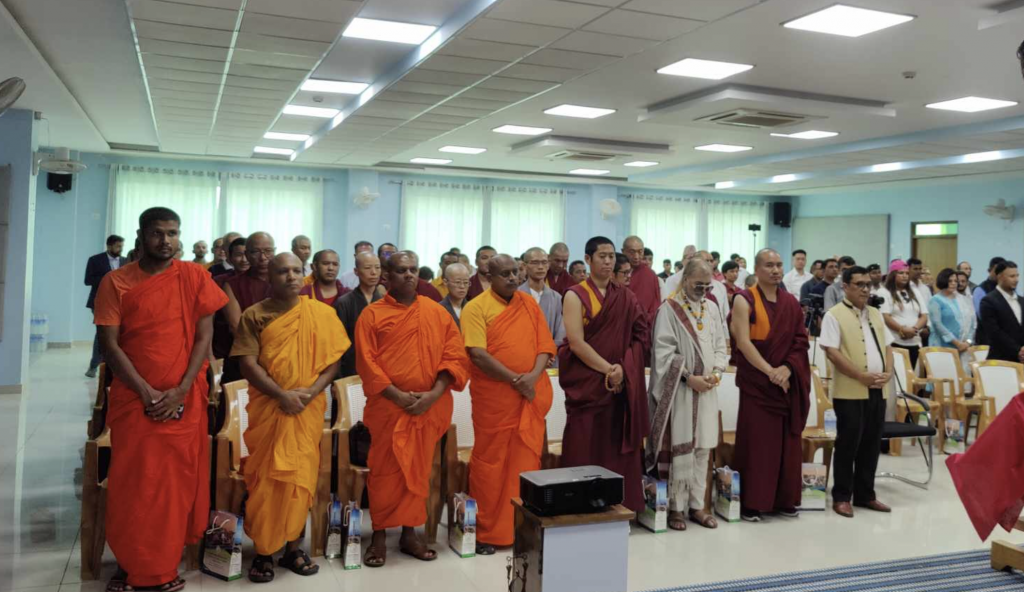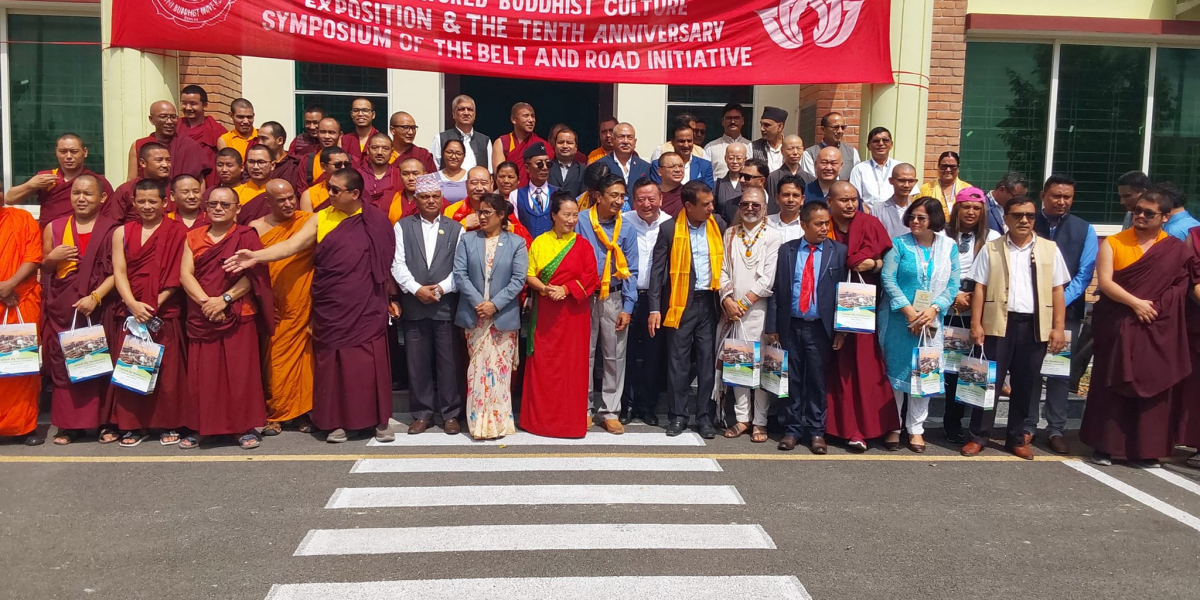On February 11, 2019, a significant phase of the agreement signed with China’s Belt and Road Initiative and Silk Road International Cooperation was set into motion. The agreement was made between Mr. Hong Hong, Silk Road Cooperation Organization, and Dr. Tilak Ram Acharya, Registrar of Lumbini Buddhist University. This agreement laid the groundwork for various development programs aimed at nurturing Lumbini Buddhist University and enhancing the overall development of Lumbini. Fast forward to today, Lumbini Buddhist University, in collaboration with the Lumbini Development Fund, marked this occasion with the 1st World Buddhist Cultural Exposition and the 10th Anniversary of the Belt and Road Initiative.

The symposium drew participation from an array of countries, including China, India, Vietnam, and Burma, and delegates from the Chinese Embassy, as well as Central and State Government Ministers. Distinguished scholars presented research papers on the Belt and Road and Silk Road initiatives. It’s worth noting that the global pandemic had temporarily halted these planned activities, but there is optimism that they will soon regain momentum.
During the program, State Minister of Culture, Tourism, and Civil Aviation, Shusila Sripali, highlighted the historical significance of Chinese travelers in shaping cultural development, particularly in the realm of Buddhist archaeology and sites. She emphasized that the development of this route will serve to connect the rich Buddhist cultures of Nepal, China, and India. Minister Sripali underscored the pivotal role of the Belt and Road Initiative (BRI) in Nepal’s development, citing recent discussions during the Prime Minister’s visit to China.

This significant event, organized by three entities, is poised to play a crucial role in promoting Buddhist philosophy originating from Lumbini. As part of the BRI’s tenth-anniversary celebrations, an office has been established in Lumbini.
Prof. Dr. Suvarnalal Bajracharya, Vice-Chancellor of Lumbini Buddhist University, highlighted the importance of practicing Buddhist philosophy and the need for regular exhibitions of Buddhist culture.
Dr. Lharkyal Lama, Vice President of the Lumbini Development Trust, emphasized the importance of cultural and economic development through the Silk Road and urged the swift completion of BRI projects. He stressed that embracing Buddhist philosophy is vital for achieving peace and harmonious development in the region.
Leaders from various temples and monasteries also shared their perspectives. Dao Yue, Guest Monk from China Ningxia Autonomous Region emphasized the universal appeal of Buddha’s teachings and the global responsibility of promoting them. Lam, head of the Vietnamese temple, expressed pride in Nepal as Buddha’s birthplace and acknowledged the historical role played by Chinese travelers in shaping the region.

Dr. Tilak Ram Acharya, Registrar of Lumbini Buddhist University, called attention to the need for placing Buddhist education at the forefront of the government’s agenda, emphasizing its significance in the state’s major bodies.
Representatives from the Bhikshu Federation and the Buddhist Monks Federation reiterated the importance of the Silk Road in the development of Buddhism and the need to continue cultural development programs.

This event celebrated the progress under the Belt and Road Initiative, fostering cultural exchange and emphasizing the enduring relevance of Buddhist philosophy in our interconnected world.

